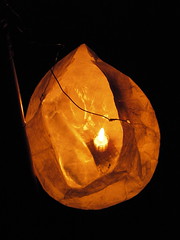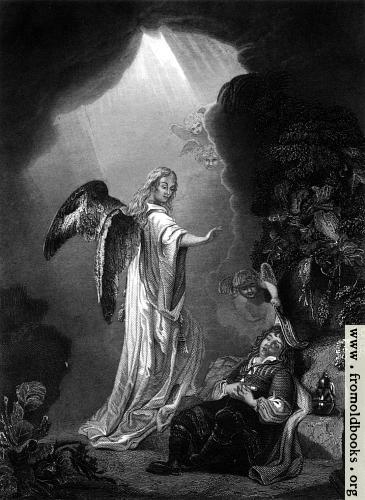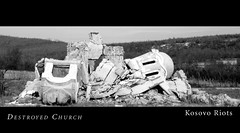
Memorial is planned for:
Saturday, February 3 at 11AM
Church on the Way
The King's Place, West Campus
14800 Sherman Way
Van Nuys, CA For more info follow at HARALDBREDESEN.COM
Some of my memories with Harald:
We invited Harald to come to Salem to be the main speaker for a conference we held called "Spirit Rising." During the day we were walking down the sidewalk together arm in arm - that is how Harald walked with you. In the middle of the conversation about our church, our city, our mayor, and our dreams for the ministry, Harald cried out with a loud voice- right there on the city street, "OH GOD!..." and preceeded to pray a beautiful prayer for us. Of course, those of you who knew Harald, know that you could not have a conversation with him without an interruption. It was always Harald interrupting God with praise and prayer.
Original Post in Honor of Harald Bredesen
I just received a call from Steve Maddox from Oasis Bridge in Oceanside, CA. Within the last hour Harald Bredesen passed away. You can read more about the situation here.
I met Harald for the first time, when I was helping run a drug and alcohol rehab program in Lake Wohlford, CA over 20 years ago. I was amazed at his gentle, yet bold demeanor, and his unbelievably childlike behavior. Over the years he has come in and out of our lives, and was one of our defenders during the time we were falsely accused. I was honored to know him personally.
I regularly refer to Harald as the greatest example I know of someone living in childlike simple faith. He was considered a primary leader in the charismatic movement. This man with a brilliant mind, and a simple faith sat with kings, presidents, and world leaders throughout his life.
He lived a full life, but nonetheless we have lost a someone I consider a great saint today. Please pray for his family.
PRESS RELEASE:
Date: December 29, 2006
The Reverend Harald Bredesen, often called the father of the Charismatic Movement whose adherents now number in the hundreds of millions, died today at Palomar Hospital in Escondido, California. He died peacefully from injuries suffered in a fall on December 26. He was 88.
In his introduction to Harald’s book, Yes, Lord, entertainer Pat Boone wrote, "Abraham . . . Moses . . . Gideon . . . Elijah . . . I think I've known a man like these. His name is Harald Bredesen. Miracles trail him wherever he goes."
Pat Robertson called his ministry to world leaders “legendary.”
Bredesen was the founder of the Prince of Peace Prize, given to Egyptian President Anwar Sadat in 1980, Mother Teresa in 1989, posthumously to King Hussein of Jordan (with King Abdullah receiving in his father’s stead) in 1999, and to Billy Graham in 2004. Sadat called the occasion he received the award “the high point of my entire life, more important to me even than the Nobel Peace Prize. That was in the political arena. This was spiritual.”
A Lutheran minister, Bredesen became the first ordained clergyman from a mainline denomination to receive the Pentecostal experience of the Baptism in the Holy Spirit, openly tell of his experience, and keep his ordination and credentials in a mainline denomination. In a letter to the editor of Eternity Magazine, Harald Bredesen and Jean Stone Willans coined the term “Charismatic Renewal.”
In the late-1950s, he introduced Pat Robertson to the experience. Robertson went on to found the Christian Broadcasting Network where Harald was a founding board member. In Pat Robertson: A Personal, Political, and Religious Portrait, historian David Harrell wrote, “In the long run it was a chance encounter with Harald Bredesen that had the most far-reaching effect on the life and career of Pat Robertson.”
In his book, Reagan Inside/Out, Bob Slosser called Bredesen, “minister to world leaders.” In that role he touched the lives of many of the most influential figures of his time. A call to prayer that Harald wrote and proposed to his friend Anwar Sadat, was cabled by Sadat, Jimmy Carter and Menachem Begin to leaders around the world on the eve of the Camp David summit. According to pundits at the time, few summits began with so little going for them. Thirteen days later, President Carter announced the breakthrough by saying, “We began this summit with a call to prayer. The results have exceeded the expectations of any reasonable person. I am a Christian. Jesus said, ‘Blessed are the peacemakers.’”
Fresh out of seminary, Bredesen went to work for the World Council of Churches as the Public Relations Secretary for the World Council of Christian Education. In that role he solicited and received the support of President Harry Truman, King George VI, Queen Wilhelmina, King Haakon, King Gustav V, King Christian X, Generalisimo Chiang Kai Shek, Henry Ford, Herbert Hoover, Mrs. Calvin Coolidge, and Harvey Firestone, Jr.
Despite his success, Harald felt something missing in his life and walk with God. In 1946, he went to a Pentecostal camp meeting where he received the baptism in the Holy Spirit.
He met and married Genevieve Corrick in 1954.
In 1957, he was called to pastor the historic First Reformed Church of Mount Vernon, New York and soon invited Robertson to join him as Assistant Pastor. Together with others who had received the Baptism in the Holy Spirit, Harald and Pat hosted Pentecostal style meetings in the old church during off hours. At one of those meetings, they felt the Lord wanted them to go public with their experiences.
The next day, Harald, Pat, and their friend, Dick Simmons, received an invitation to meet with Norman Vincent Peale’s wife, Ruth Stafford Peale, to discuss the topic with her. She went from that meeting to a board meeting at Guideposts Magazine where she spoke with the young writer, John Sherrill. His investigation led to his best seller, They Speak With Other Tongues. Harald introduced John to the young street preacher, David Wilkerson, who, with John, wrote The Cross and the Switchblade, one of the best selling books of all time. (Some sources place the number of copies in print at over fifty million.)
Father Francis McNutt and others credited these two books with sparking the Charismatic Renewal in the Catholic Church now estimated to number over 120 million in over 230 countries. Statistics on the number of Charismatic Protestants are difficult to find, but it is clearly one of the most important religious movements of the last half century.
In its report on the Charismatic movement on the campus at Yale, Time magazine called the students who received glossolalia (tongues), “GlossalYalies.” It went on to say, “They date their experience to two campus visits by the Reverent Harald Bredesen.” The Saturday Evening Post dubbed him “Charismatic envoy to the campuses.” Encyclopedia Britannica’s first article on the Charismatic movement featured a photograph of Harald.
Bredesen hosted the long running Christian Broadcasting Network television program, “Charisma.” He authored the books Yes, Lord and Need A Miracle?, the CD “Toolkit for Eternity: A Walk with Harald Bredesen,” and the video, “How to Receive the Baptism in the Holy Spirit.”
He is survived by his wife, Genevieve; his children, Dagni, Margaret, Christopher, and David; and five grandchildren.
Information regarding memorial services will be given later.





.jpg)











